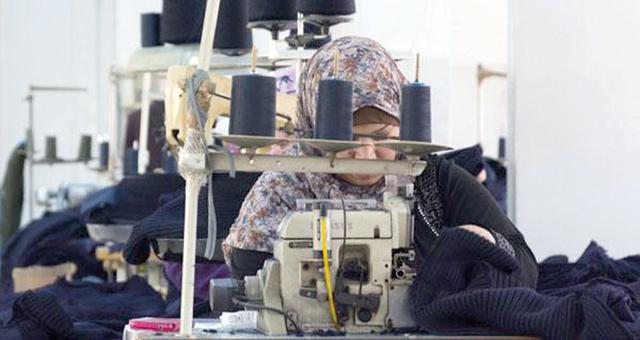You are here
Manufacturing diversification key to boosting export revenues — study
By Dana Al Emam - Mar 14,2017 - Last updated at Mar 14,2017
AMMAN — By diversifying the basket of manufactured goods and increasing the sophistication of these products, Jordan has an opportunity to enhance export revenues and boost its competitiveness, a recently launched study concluded.
Carried out by the Jordan Strategy Forum, the first part of the “Jordanian Product Space” study sought to examine the Jordanian economic complexity as a driver of economic prosperity.
Over a 50-year period, from 1964 to 2014, Jordan’s Economic Complexity Index (ECI) ranking among the rest of the world witnessed a “huge” decrease, dropping from 15th to 67th place.
The economic complexity of a country is derived from an evaluation of the diversification and sophistication of a country’s basket of manufactured goods.
While chemical products, textiles and vegetables have the largest share of exports, other sectors like wood production and transportation have the highest levels of sophistication, according to the study.
Simultaneously, Jordan’s focus on sectors like textiles and agriculture is the reason for the drop in Jordan’s ranking in the ECI, the study argued. Although the two sectors are the biggest contributors to Jordan’s domestic exports, their low levels of sophistication are negatively affecting Jordan’s economic complexity.
“There is a direct correlation between the ECI, gross domestic product [GDP] and prosperity worldwide,” said the study.
The study recommended that the government promotes and supports industries of higher complexity across all sectors.
“The government plays a crucial role in directing industries that generate higher value added to the economy, while creating sustainable growth by lowering their dependence on exporting natural resources and focusing on new products with higher levels of sophistication,” it added.
It also suggested that industries that produce and export scarce raw materials with low levels of sophistication should develop their products in order to enhance the complication levels of exported products.
“Research indicates that the easiest way to increase the economic complexity of the country’s export basket would be through giving foreign companies with new expertise a chance to produce new goods in the country,” the study noted.
Improving human resources, institutional capacities and infrastructure is key to boosting economic complexity, according to the study.
In 2015, the industrial sector contributed 24.7 per cent to the Kingdom’s GDP. Furthermore, it functions as a job provider, employing 221,518 people in the first half of 2016, the study said.
Meanwhile, the sector has been witnessing challenges, including the closure of the Iraqi and Syrian borders and markets, in addition to increases in the costs of transportation and electricity.
Related Articles
AMMAN — A new study suggests that advancing the government’s supportive policies to the industrial sector, including the opening of new mark
AMMAN — The Jordan Strategy Forum (JSF) has launched the third version of its regular series about “Jordan’s Product Space”. The report
AMMAN — The Jordan Strategy Forum (JSF) has issued a policy brief exploring the contributions of Jordan’s textile sector to the national eco

















